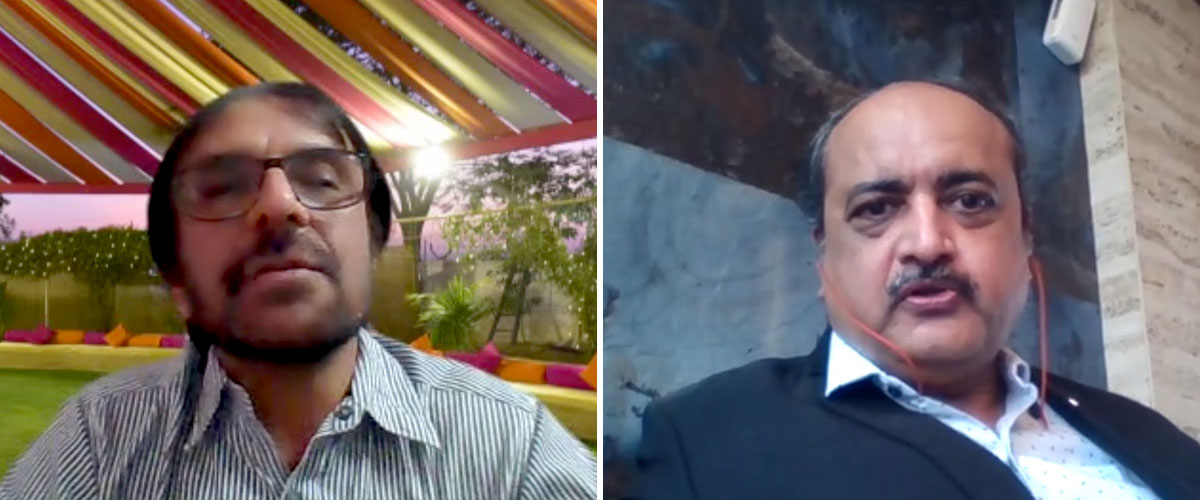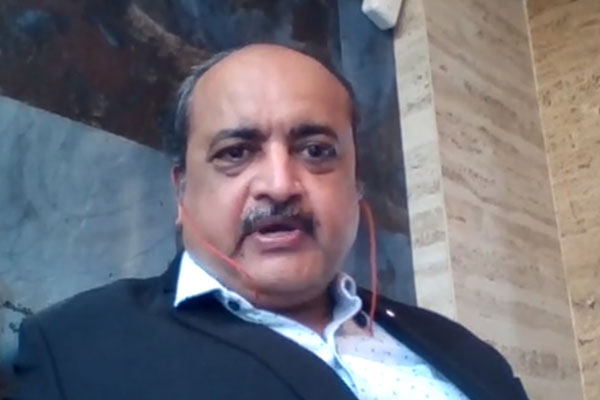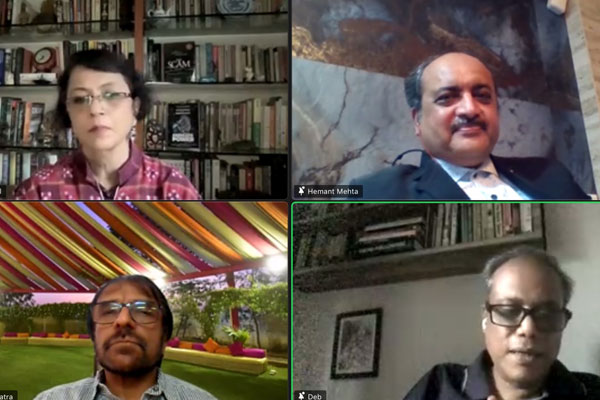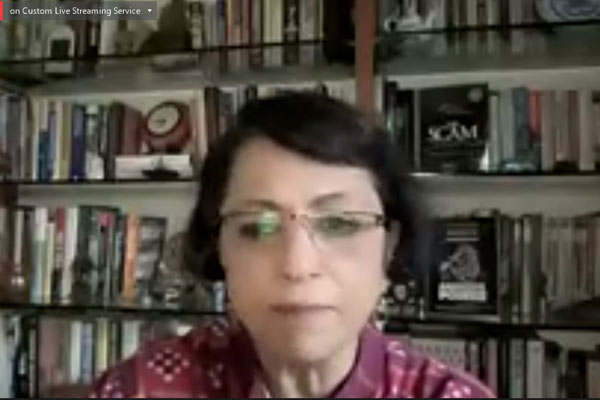
"Although cases where homebuyers are left in the lurch due to developers filing bankruptcy might seem like the end, such cases can be resolved through a clear understanding and consensus among the affected homebuyers. Individual battles will not help, a collective effort is needed," says Dr Rajendra M Ganatra, insolvency resolution professional. He, along with chartered accountant (CA) Hemant Mehta, who is also insolvency professional, was speaking at a webinar organised by Moneylife Foundation on the rights of home buyers.
After holding home-buyers as financial creditors as per the Insolvency and Bankruptcy Code (IBC), in January this year, the Supreme Court accepted an amendment in the IBC as constitutionally valid, which requires no less than 100 or 10% home-buyers to initiate insolvency against builder or developer. Under the IBC amendment passed by the Parliament in March 2020, a single home-buyer is barred to approach the National Company Law Tribunal (NCLT) under Section 7 of the IBC.
However, despite the ruling from the apex court, homebuyers are slowly realising that the judgement had not much changed their prospects of receiving a fair deal in bankruptcies cases in projects where they had booked a property and paid significant sums of money.
Many investors and homebuyers had written to Moneylife Foundation asking for guidance on how to protect their interest.
According to Dr Ganatra section 3(31) of the IBC is of particular interest for home-buyers as if defines security interest. He says, “Security interest means right, title or interest or a claim to property, created in favour of, or provided for a secured creditor by a transaction, which secures payment or performance of an obligation and includes mortgage, charge, hypothecation, assignment and encumbrance or any other agreement or arrangement securing payment or performance of any obligation of any person. Provided that security interest shall not include a performance guarantee.”
“Home-buyers have a security-interest as an owner of the specific unit. So, in effect, arguably, the homebuyer’s status as owner of the property is senior to that of the secured lenders” he says adding, “Unfortunately homebuyers are treated as unsecured financial creditors. Is there a logic in this or a flaw that must be corrected?”
Dr Ganatra also shared an example of C&C Towers Ltd. The Gurgaon based company had a paid-up capital of Rs125.17 crore. It had project finances, which were sanctioned by State Bank of Hyderabad, State Bank of Patiala, Punjab National Bank and Punjab and Sind Bank.
Sharing remedies from the C&C tower fiasco, Dr Ganatra says, “Allottee’s must be made secured creditors having regard to their security interest. The accounting figures should be rectified to match with the valuation, and funds diverted must be recovered.”
“The entities responsible must lose their priority position under section 53 of IBC. Mandatory timelines must be stipulated and enforced for disposing off avoidance applications” he further added before concluding his presentation.
CA Mehta began his presentation explaining the definition of corporate debtors in a real estate project. While speaking about homebuyers issues project-wise and how homebuyers voting rights qua project are affected, he elaborated on the different stages of completion of various projects.
“The promoters’ definition is important in view of continuation of projects for permissions for revival of Real Estate (Regulation and Development) Act, 2016 (RERA) and other things but if there are lapses, can homebuyers’ association be promoters for that purpose? Intruders in the dress of unsecured loan holders, unpaid contractors, and unpaid suppliers are often allotted flats without proper documentations,” he says.
Mr Mehta also shared examples of Jaypee Infra and the case of Metallica Industries, while offering solutions for the same.
Concluding his presentation, Mr Mehta, the CA, shared few others cases and the remedies that were proposed in these cases.
“In case of Jaypee, additional cost towards construction was charged while in case of Orbit group project at Andheri in Mumbai, old homebuyers were charged additional cost of Rs3,000 to Rs5,000 per sq ft whereas new homebuyers were charged about Rs15,000 per sq ft less than those who had originally booked,” he says.
Sucheta Dalal, founder trustee of Moneylife Foundation, moderated the panel discussion between Dr Ganatra and CA Mehta. She observed that there were positive results in cases of insolvency, when the homebuyers came together as a group, investing additional funds and hiring another construction company.
Elaborating on this observation, CA Mehta explained, “I have experienced two kinds of things. One, where before the project is completed, 70% or more number of buyers come together to pay additional money, hire expertise and complete the project. In other case, if the work has not been started at all, and if it is only at a plinth level, we have observed that new developers are brought on, who may finish the project after some additional contribution from the buyers. For the new developer, the project does not make a profitable sense unless there is additional contribution from all stakeholders.”
Ms Dalal further questioned the panelists on their advice for homebuyers, who might be involved with a company that handled multiple projects, where one of them might be 80% complete while another might not have even started.
“There has be an authorised representative for such kind of projects under the same company. Such a representative must take the interests of their own group and accordingly there has to be a voting pattern. If individual homebuyers do not agree to have an authorised representative, everyone’s interests will not be equally represented in a vote, and perhaps one project, which was 80% complete might get preference, while other projects might not, putting those buyers in a difficult position,” advised Mr Mehta.
Dr Ganatra added that while it is difficult for homebuyers to come together in such cases, it is not at all impossible and in his experience, many cases have been satisfactorily resolved.
Debashis Basu, founder trustee of Moneylife Foundation, made an important observation that cases such as those of C&C Towers are clear indications of fraud and instead of trying to resolve them through an insolvency resolution professional, perhaps a public interest litigation (PIL) needs to be considered.
“Yes, a PIL can certainly be considered and is called for. The only pitfall in taking this route for a resolution is a weak legal counsel. One needs to have a legal counsel that commands the respect of the bench. Otherwise, there is no argument to be made,” Dr Ganatra responded.
Mr Basu also questioned the legality of considering a homebuyer who has a registered sale deed with stamp duty paid, a lender or a creditor. A homeowner “owns the asset. He is not a banker, vendor, supplier or a workman. He is just the asset owner. Under which law does he then become a lender or creditor?” asked Mr Basu.
“Yes,” says Dr Ganatra. “He is a buyer, has paid stamp duty, and has a sale agreement. Having an agreement means he has a claim on that asset and he is paying in installments for this claim. The asset, which is under construction is being paid advance money from the homebuyer and this is essentially an advance against the asset, which shall be given to him upon completion. Taking this further, it is then as if a credit is extended to the construction company. The homebuyer is a creditor who owns a piece of the property.”
Due to the time constraints in a webinar, many specific questions of the attendees could be answered. However, both Dr Ganatra and Mr Mehta, the CA, have kindly agreed to address and clarify any questions sent to them through Moneylife Foundation. If you are such a concerned homebuyer, please send a detailed mail to [email protected].
A video recording of the session is available on Moneylife Foundation’s YouTube Channel





